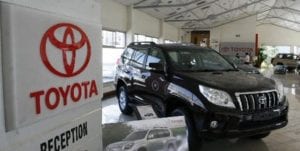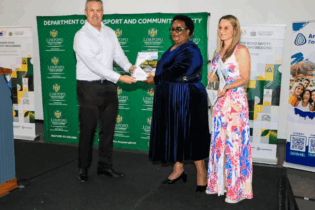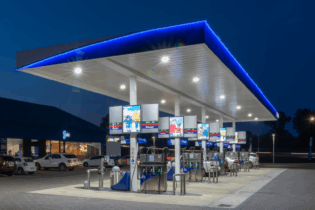Auto maker Toyota is setting up a Sh1.28 billion logistics hub in Nairobi that will be used by 13 countries in sub-Saharan Africa to source vehicles directly from Japan.
Through its trading and investment arm Toyota Tsusho Corporation, the firm on Wednesday signed a memorandum of understanding with the Vision 2030 delivery board that will facilitate the establishment of the centre and support collaborations with the Kenyan government in the automobile, power and energy, petroleum and mineral resource, environmental infrastructure, agricultural industrialisation fields.
Company managing director Kuniaki Yamagiwa, said a regional vehicle logistics centre and central parts depot will be established in Nairobi’s South C.
“Kenya has caught attention in recent years as a major African hub, as the nation has grown rapidly along with the economic development of the Common Market for Eastern and Southern Africa, Comesa. It is a priority in the company’s global 2020 vision,” he said.
Companies in the Sub-Saharan region will be saved from importing vehicles directly from Japan with the establishment of the facility.
It is expected that the center will reduce their cost and other importation inconveniences experienced because of the long distance.
According to the chairman of Toyota Kenya Dennis Awori, the hub will also house a technical training centre that will offer both managerial and mechanical courses for prospective employees in the automotive industry.
“The project is already underway and will be operational soon. Apart from technical training, the institute will also bring up people with managerial skills that will be useful in the sector,” he added.
Mr Yamagawa also said that the company had placed a strong bid for the construction of the Lamu-Juba 1400 kilometer oil pipeline, that is expected to cost Sh114 billion, after completing a feasibility study on the project.
With a deal that will need consent from four governments, TTC plans to enter into a Build Own and Transfer (BOT) arrangement, whereby they fund the whole operations without seeking the respective country’s financial support.
The pipeline is expected to stretch from Juba in Southern Sudan, passing through Ethiopia and Uganda before entering into the Coastal town of Lamu.
Late on Monday, a statement from South Sudan’s minister of energy and minerals development Stephen Dau said that it had consulted with Kenya and were in the process of formulating an inter-governmental legal framework that will provide for implementation of the project.
In April, TTC invested into second-hand vehicle businesses in the country by opening Toyotsu Auto Mart. The multi-operational showroom retails and services pre-owned Toyota, Daihatsu, Hino and Subaru units.
Source: http://www.nation.co.ke






